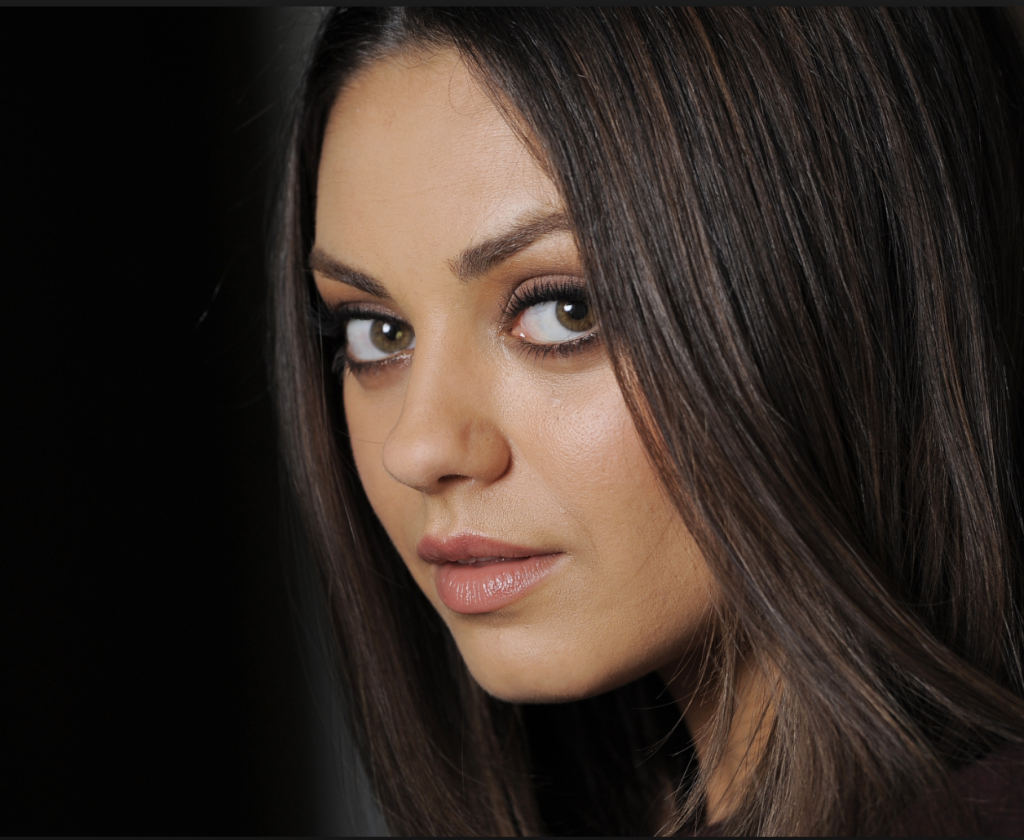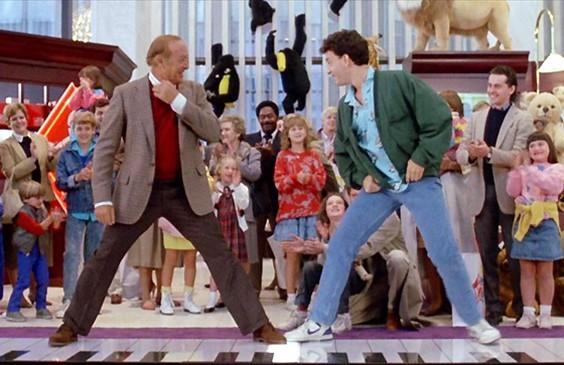Genre: Action-Comedy
Premise: After learning her dead boyfriend was a secret spy, a supermarket cashier and her weird best friend attempt to finish his last mission.
About: This script just went through a bidding war with Lionsgate surprisingly coming out on top (Lionsgate makes comedies now?). It will star Bad Moms breakout Mila Kunis, along with the uber-polarizing Kate McKinnon, in the team-up. The film will be directed by Susanna Fogel, who created the television show, Chasing Life. The script was written by Fogel and David Iserson, who’s been writing for TV since the early 2000s. He wrote on SNL, New Girl, Mad Men, Mr. Robot, and Mozart in the Jungle.
Writers: Susanna Fogel & David Iserson
Details: 117 pages – First Draft
The comedy genre is in a weird place. Whereas a decade ago, you could count on a comedy being one of the top 5 box office performers of the year (The Hangover), now the top-performing comedies are lucky to finish in the top 20.
Last year, for example, the top comedy films were Central Intelligence (no. 22) and Bad Moms (no. 25). The year before that it was Daddy’s Home (no. 22) and Spy (no. 27). I know, right? A lot of people assumed Spy bombed. Yet it was the second biggest comedy of 2015!
And this is for a lot of reasons. Comedies don’t perform internationally, so studios don’t care about them as much. Spectacle films are becoming a jack-of-all-trades, offering plenty of laughs along with their action. And between the explosion of television and the quick fix that Youtube provides, laughs are easier to come by than ever. You don’t need to block out an entire Friday evening for them anymore.
What does this mean for you, the comedy screenwriter?
Good question. I don’t think the business has course-corrected to this reality yet. It’s business as usual, with the only tweak being a bigger focus on female-centric comedies. We need some fresh thinkers to come along and shake things up, like what Sacha Baron Cohen did when he dropped the Borat bomb on us.
With that said, coming up with a genuinely funny concept is a great place to start. I still think a super-clever premise like The Hangover would do gangbusters business. Is “The Spy Who Dumped Me” in the same clever neighborhood? No. But it’s not bad. Let’s see how it fared.
27 year-old Audrey is pissed off that she’s working at Trader Joe’s three years longer than anyone her age should be working at Trader Joe’s. She wants to get her life started but a recent dumping by her boyfriend, Drew, hasn’t exactly motivated her to kick life’s ass.
Audrey’s weirdo best friend, Morgan, is one of those girls whose parents told her she could be anything she wanted and has parlayed that mindset into pursuing the lucrative market of performance arts.
On her 1 year anniversary of meeting Drew, Audrey is approached by a cute British guy named Sebastian who tells Audrey that Drew is a spy and he needs to know where he is. Audrey doesn’t know, but later that day, Drew shows up to get his stuff, only to be assassinated right in front of Audrey’s eyes. With his dying breath, Drew gives Audrey a jump drive and tells her to deliver it to a guy in Austria or really bad things will happen.
Audrey doesn’t want any more blood on her hands than the blood from her dead boyfriend that’s on her hands, so she recruits Morgan, who’s more than happy to play spy, and the two fly to Austria. But once there, they realize they’re in way over their heads, and a cacophony of John Wick level assassins are quickly on their tail.
They eventually meet up with Sebastian again, who Audrey’s starting to like, and attempt to figure out what the data on the jump drive means. Just when Audrey thinks this whole thing will finally be over, she’s confronted with a shocking revelation that throws everything up in the air.
How long can a jump drive last in someone’s vagina? Can Sebastian be trusted? Why is Morgan so obsessed with uncircumcised penises? Hopefully these questions will be answered soon. Or else our amateur spies will end up professionally dead.
One of the commonalities I’ve found with these big idea professionally scripted comedies is that they’re always impeccably structured. The writers clearly understand plotting and how to keep the story moving in a fun way.
But that also becomes the script’s big weakness. They’re so beholden to getting that structure down that the script ends up winning the Screenwriting 101 Structure Contest, but losing the Funny Competition.
It’s weird because on the flip side you have Judd Apatow. That dude could give two shits about structure. He’d make 4 hour comedies if studios would let him. Yet he’s able to find these occasional gem moments that are really funny, even if you had to sit in the theater way too long to get to them.
So the question becomes, which approach is better?
I think you know the answer. The ideal situation is to do both. You want to keep that plot moving, but not so quickly that it mitigates those all important belly laughs. Because that’s why we’re here. To laugh.
The unique challenge with a movie like The Spy Who Dumped Me is that it’s going to market itself as a comedy but it’s beholden to the rules of an action spy flick. And the number one rule with those is to keep the plot moving very quickly, like a Bourne film. That’s why I expect there aren’t as many laughs here as there need to be (yet). They never slow down to have them.
The only times I’d laugh were throwaway lines or the occasional zinger. In comedy, you need those memorable hilarious set pieces, like opening up the trunk of your car to see a batshit crazy naked Asian man go bananas on you. And while we had set pieces here, they were either too familiar or too plot-driven.
For example, the first goal in Audrey’s mission is to meet a guy at a cafe in Austria. So we have a potentially funny set piece scene here. Audrey can try to play the tough cool-as-ice spy (exactly the opposite of who she is) as she makes the hand-off, while Drew’s contact senses something is way off about this bumbling girl who’s anything but a spy.
But the scene is played more like an action movie. She sits down. She talks to someone. We get the sense that the someone she’s talking to isn’t the right person. And then all hell breaks loose with guns and yelling and running oh my. Likewise, most of the movie’s laughs are derived from “in over her head” moments of guns being fired and Audrey being like “Oh shit!” before barely getting away with her life.
Which is fine. Those scenes make sense in a movie like this. But that can’t be all you depend on. One of the most important rules of writing comedies is meticulously figuring out everything that’s unique about your concept that you can exploit for comedy. That gives you a variety of comedic set pieces to play with so you don’t have to keep going back to the same joke.
For some reason, we don’t do that anymore. The reason that Big is still a classic today is because it did that better than any comedy ever. It exploited its premise in a variety of ways. There weren’t any scenes in that movie that felt the same. Which is the opposite here. Every scene feels the same.
I do want to reiterate that there is skill on display in this script. While it missed the mark for me, it’s still waaaaaay better than the amateur comedies I read. Like way way better. Come to think of it. Comedy is probably where the biggest disparity is between professional and amateurs. It’s so hard to be funny within the confines of the stuffy screenplay rules.
Maybe that’s why when I read a script like The Spy Who Dumped Me, I’m so hard on it. It’s gotten itself to a level that most comedy writers will never get to. And that’s why you’re so upset that it doesn’t offer more.
[ ] What the hell did I just read?
[x] wasn’t for me
[ ] worth the read
[ ] impressive
[ ] genius
What I learned: Studios are currently favoring comedies with an action slant since they’re easier to sell globally. I still say write the best comedy concept you can come up with. But if it has an action slant, all the better.




